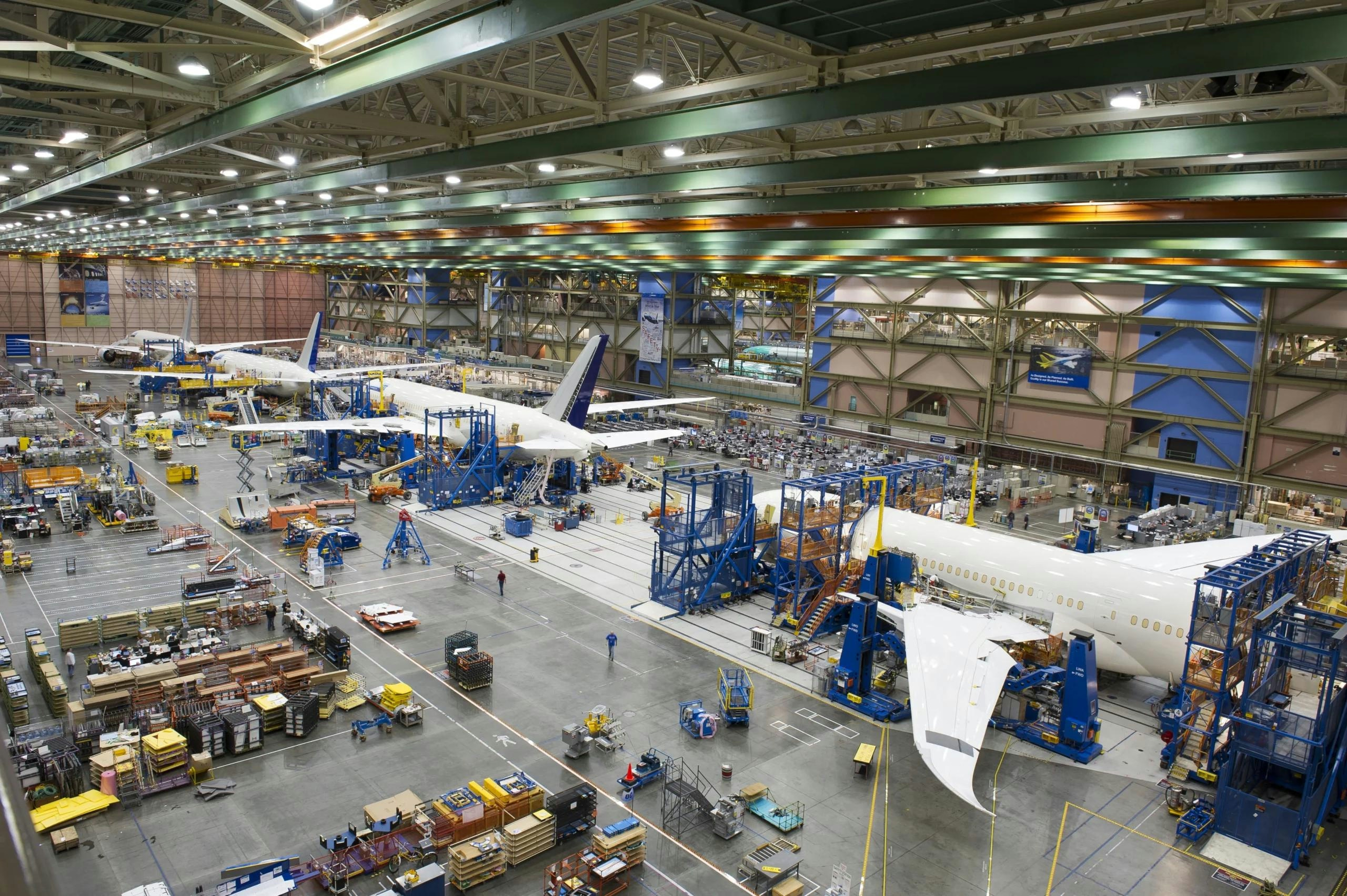AeroGenie — Seu Copiloto Inteligente.
Tendências
Categories
Boeing Ramps Up 787 Production in South Carolina with $1 Billion Expansion

Boeing Commences $1 Billion Expansion to Increase 787 Dreamliner Production in South Carolina
Significant Investment to Meet Growing Demand
Boeing has initiated a $1 billion expansion of its 787 Dreamliner production facilities in North Charleston, South Carolina, with the objective of increasing output to 10 aircraft per month by 2026. This substantial investment, announced in late 2024, is a direct response to rising global demand for fuel-efficient widebody jets. The project is expected to generate over 1,000 new jobs in the region, reinforcing Boeing’s commitment to American manufacturing and the local economy.
The expansion encompasses two sites near Charleston International Airport and includes the construction of a new final assembly building designed to mirror the existing 1.2 million-square-foot facility. Alongside this, upgrades will be made to assembly, painting, and interiors production processes, particularly enhancing the Interiors Responsibility Center, where many 787 cabin components are produced. The development is being overseen by a joint venture between HITT Contracting and BE&K Building Group, involving more than 2,500 workers and over 6.2 million labor hours.
Strategic Importance of the North Charleston Campus
Since 2009, Boeing’s North Charleston campus has been integral to the 787 program, currently employing over 8,200 personnel across its South Carolina operations. The site manages the entire production cycle—from fabrication and assembly to delivery—serving a diverse global customer base. The 787 Dreamliner family, which includes the 787-8, 787-9, and 787-10 variants, has amassed more than 2,250 orders from 90 airlines worldwide, with Boeing maintaining a backlog nearing 1,000 aircraft.
Industry leaders and government officials have lauded the expansion as a major boost for both American manufacturing and South Carolina’s economy. Stephanie Pope, president and CEO of Boeing Commercial Airplanes, underscored the company’s dedication to fulfilling customer demand while supporting domestic manufacturing capabilities. South Carolina Governor Henry McMaster described the expansion as a strong endorsement of the state’s workforce and business environment. U.S. Senators Lindsey Graham and Tim Scott also highlighted the long-term job creation and economic benefits anticipated from the project.
Market Outlook and Industry Challenges
The expansion aligns with Boeing’s Commercial Market Outlook, which forecasts demand for over 7,800 new widebody aircraft globally over the next two decades. The market has reacted favorably, with Boeing’s stock rising following the Federal Aviation Administration’s approval to increase 737 MAX production and a series of significant new orders. Nevertheless, Boeing faces challenges in scaling production capacity, maintaining supply chain stability, and upholding stringent quality control measures to ensure safety standards.
Competition within the widebody aircraft market is intensifying, with Airbus poised to increase its production to meet growing demand. Additionally, emerging opportunities such as conversion programs—including the Kansas Modification Center’s plans to develop a Boeing 787 freighter—are expected to influence the cargo aircraft segment. Boeing’s expansion in South Carolina reflects the company’s broader strategy to solidify its position in the global aviation market while navigating evolving industry dynamics and maintaining a strong focus on safety and quality.

Emirates Unveils Cabin Design for New Boeing 777X

Eighteen Years On, the Airbus A380 Remains Central to a $34 Billion Airline

How a boom in luxury airline seats is slowing down jet deliveries

Navitaire Outage Attributed to Planned Maintenance

Airbus Plans Record Delivery of 870 Aircraft in 2026

DigiYatra Debuts Outside Aviation at India AI Impact Summit

Vietnam Orders Strengthen Boeing’s Commercial Outlook

Airbus Signals Uncertainty Over Future A400M Orders

JobsOhio Awards $2 Million Grant to Hartzell Propeller for Innovation Center

Collins Aerospace Tests Sidekick Autonomy Software on YFQ-42A for U.S. Air Force CCA Program
